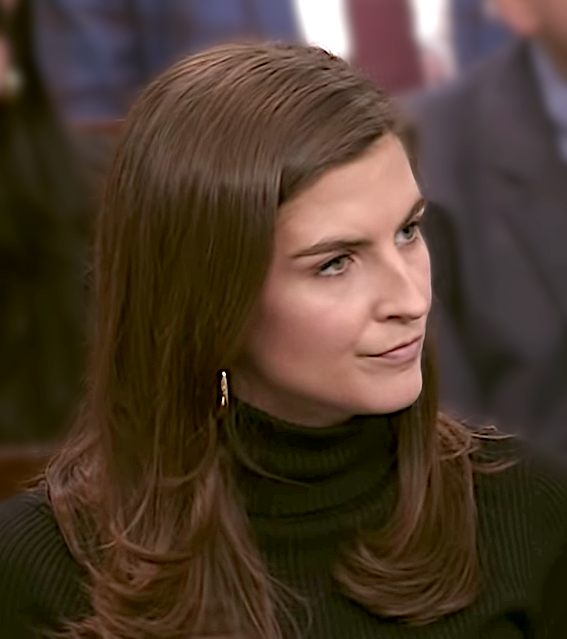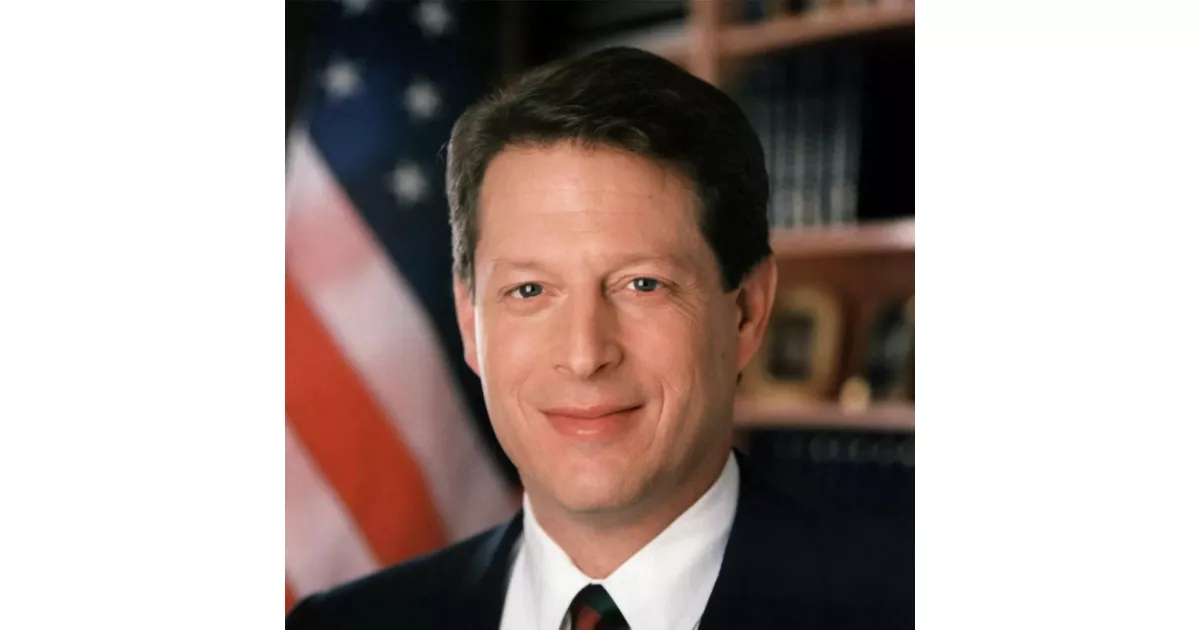Controversies are a part of history. Explore the biggest scandals linked to Al Gore.
Al Gore served as the 45th U.S. Vice President under Bill Clinton (1993-2001). Prior to that, he represented Tennessee in both the House of Representatives (1977-1985) and the Senate (1985-1993). As the Democratic nominee in the 2000 presidential election, he lost to George W. Bush despite winning the popular vote. He is also a businessman and environmentalist.
1981: Remarks on Homosexuality
In 1981, Al Gore stated, "I think it is wrong" with regard to homosexuality and added, "I don't pretend to understand it, but it is not just another normal optional life style."
1984: Senate Race Remarks on Homosexuality
During his 1984 Senate race, Al Gore stated, "I do not believe it is simply an acceptable alternative that society should affirm," when discussing homosexuality, and that he would not take campaign funds from gay rights groups.
1988: Super Tuesday and Endorsement Controversy
In 1988, twelve southern states held their primaries on Super Tuesday. Jesse Jackson defeated Gore in South Carolina. Gore split the Southern vote with Jackson. Gore was later endorsed by New York City Mayor Ed Koch who made statements in favor of Israel and against Jackson. Due to Koch's statements and attacks against Jackson, Dukakis, and others, Gore received only 10% of the vote in the New York primary. Gore then dropped out of the race.
1991: Support for the Gulf War
In 1991, Al Gore was one of ten Democrats who supported the Gulf War.
1991: Vote on Persian Gulf War Resolution
In 1991, Al Gore, then a U.S. Senator, was one of a handful of Democrats who voted in favor of the resolution endorsing the Persian Gulf War.
1996: "Chinagate" Controversy
In 1996, Al Gore became involved in the "Chinagate" campaign finance controversy over his attendance at an event at the Buddhist Hsi Lai Temple in Hacienda Heights, California.
March 1997: Explanation of Phone Calls
In March 1997, Al Gore had to explain phone calls he made to solicit funds for the Democratic Party for the 1996 election. He stated that the calls were charged to the Democratic National Committee and that he had been advised there was nothing wrong with that.
1998: FBI Agents Denied Opportunity to Interview
In 1998, FBI agents were denied the opportunity to ask President Bill Clinton and Vice President Al Gore questions during Justice Department interviews and were only allowed to take notes in the "Chinagate" investigation.
2000: Appearance on Late Show with David Letterman
In 2000, Al Gore appeared on the Late Show with David Letterman and read Letterman's Top 10 List of Rejected Gore-Lieberman Campaign Slogans, which included the line: "Remember, America, I gave you the Internet, and I can take it away!"
2000: Request for Independent Counsel Denied
In Spring 2000, Robert Conrad Jr. asked Attorney General Janet Reno to appoint an independent counsel to continue the investigation into Al Gore's fund-raising controversies. After looking into the matter, Reno judged that the appointment was unwarranted.
2000: 2000 Presidential Election Loss
In the 2000 presidential election, Al Gore lost the electoral college vote to George W. Bush despite winning the popular vote. The election concluded after the Supreme Court ruled in Bush v. Gore.
2002: Criticism of Bush Administration's rush to war
Beginning in 2002, Al Gore began to publicly criticize the Bush administration. In a September 23 speech to the Commonwealth Club of California, Gore criticized Bush and Congress for rushing to war in Iraq, contrasting it with the 1991 Persian Gulf War.
2004: Accusation of Bush using 9/11 attacks for Iraq invasion
In 2004, during the presidential election, Al Gore accused George W. Bush of betraying the country by using the 9/11 attacks as a justification for the invasion of Iraq.
2005: Criticism of Bush administration's response to Hurricane Katrina
In 2005, Al Gore criticized the Bush administration's response to Hurricane Katrina. Following Hurricane Katrina, Gore chartered two planes to evacuate 270 people from New Orleans.
2005: Webby Awards Lifetime Achievement Award
In 2005, Al Gore received the Lifetime Achievement Award at the Webby Awards for his contributions to the Internet. During his acceptance speech, limited to five words, he joked: "Please don't recount this vote." Vint Cerf also joked, "We all invented the Internet."
2006: Criticism of domestic wiretaps and treatment of Arabs
In 2006, Al Gore criticized President Bush's use of domestic wiretaps without a warrant. Later that year, at the Jeddah Economic Forum, Gore criticized the treatment of Arabs in the U.S. after 9/11, expressing that the abuses did not represent the desires or feelings of the majority of Americans.
2007: Criticism for Energy Consumption
In 2007, Al Gore was criticized for his above-average energy consumption in using private jets and owning multiple, very large homes, one of which was reported as using high amounts of electricity. Gore's spokesperson responded by stating that the Gores use renewable energy which is more expensive than regular energy and that the Tennessee house in question has been retrofitted to make it more energy efficient.
2007: British Judge on An Inconvenient Truth
In a 2007 court case, a British judge said that while he had no doubt the film "An Inconvenient Truth" was broadly accurate, he upheld nine of a "long schedule" of alleged errors presented to the court. He ruled that the film could be shown to schoolchildren in the UK if guidance notes given to teachers were amended to balance out the film's one-sided political views. Gore's spokesperson responded that the court had upheld the film's fundamental thesis and its use as an educational tool.
2008: Blitzer reflects on the 'invented the Internet' controversy
In 2008, Wolf Blitzer reflected on the 1999 interview with Al Gore and the subsequent controversy, acknowledging that Gore's carefully phrased comment about creating the Internet was distorted by his enemies, resulting in a devastating setback for Gore.
2009: Misrepresenting Scientific Data
During the COP15 climate change conference in Copenhagen in 2009, Al Gore cited research from Dr. Wieslaw Maslowski to claim that there is a 75% chance that the entire north polar ice cap could be completely ice-free within the next five to seven years. However, a fact-check conducted by Reuters found that Gore was guilty of misrepresenting scientific data or spreading misinformation.
2009: Commentary on Dick Cheney's criticism of Obama administration
In 2009, Al Gore commented on former Vice President Dick Cheney's criticism of the Obama administration. Gore referenced his own delayed criticism of the Bush administrations, stating he waited two years after leaving office to make critical statements.
2009: Gore Describes Court Ruling as Being in His Favor
In 2009, Al Gore described the British court ruling as being "in my favor".
2012: Sale of Current TV to Al Jazeera
In 2012, Al Gore was criticized when he sold his television channel Current TV for around $100 million to Al Jazeera, a media company funded by the government of Qatar, a nation largely dependent on income from the fossil fuel industry.
Mentioned in this timeline

Jesse Jackson is an American civil rights activist politician and...

Bill Clinton served as the nd U S President from...

Hillary Diane Rodham Clinton is a prominent American politician lawyer...

George W Bush the rd U S President - is...

Joe Biden is an American politician who served as the...

The White House located at Pennsylvania Avenue NW in Washington...
Trending

43 minutes ago US, Israel launch military operation against Iran, airstrikes kill leader, Gulf earthquake follows.

43 minutes ago Kaitlan Collins covers Bill Clinton's Epstein testimony and calls out Trump allies.

43 minutes ago Adam Levine and Behati Prinsloo: Navigating Cheating Allegations and Maintaining Relationship

43 minutes ago Brandi Carlile Honored as Time's 2026 Woman of the Year, Other News Emerge
Gabe Perreault is a Canadian-born American professional ice hockey player currently playing for the New York Rangers in the NHL...

44 minutes ago Steve Witkoff involved in tense Geneva meeting before US-Iran conflict escalation.
Popular

Jesse Jackson is an American civil rights activist politician and...

Hillary Diane Rodham Clinton is a prominent American politician lawyer...

Jim Carrey is a Canadian-American actor and comedian celebrated for...

XXXTentacion born Jahseh Dwayne Ricardo Onfroy was a controversial yet...

Kashyap Pramod Patel is an American lawyer who became the...

Michael Joseph Jackson the King of Pop was a highly...
